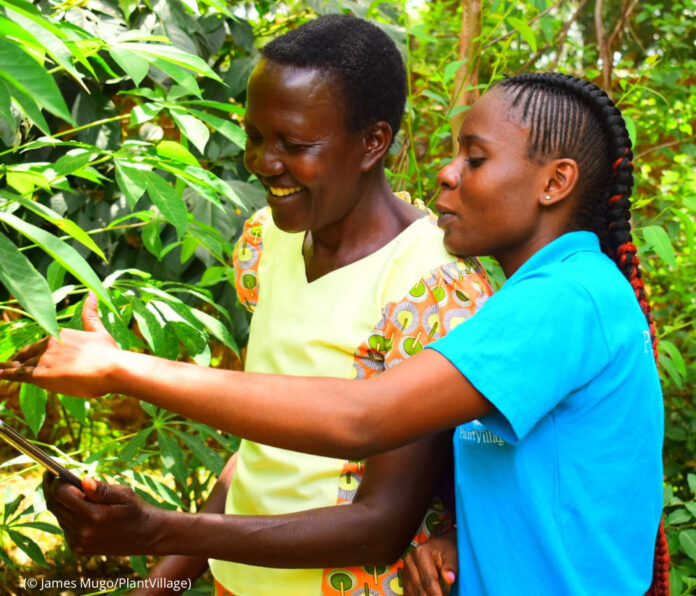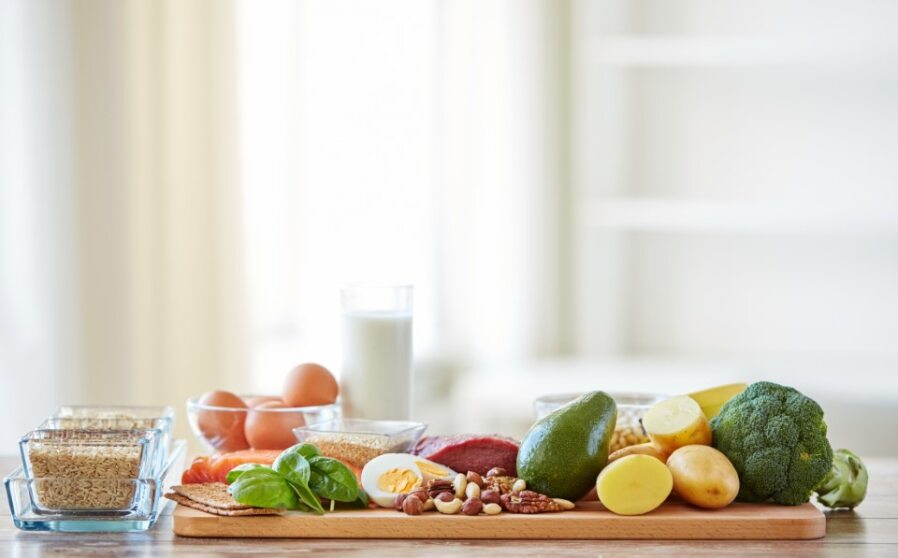Romaric Nebnoma Tiendrebeogo and other farmers in Africa are seeing significant increases in yields, thanks to new artificial intelligence tools.
Using a smartphone app, Tiendrebeogo, of Burkina Faso, can photograph an unhealthy crop and determine what pests, disease or other problems are threatening his harvest. Developed by PlantVillage at Penn State University, the app uses AI to compare farmers’ crop photos to a database of over 100,000 plants and diseases.
PlantVillage is a U.S. Agency for International Development (USAID) Feed the Future Innovation Lab for Current and Emerging Threats to Crops. The app helps farmers to grow healthy crops and make better choices about pesticides and fertilizer, benefiting their bottom lines and the environment.
Tiendrebeogo says farmers use the app for a range of crops, including cabbage, cassava, corn, onion, tomatoes, okra and citrus. A survey of roughly 100 growers who use the app reported increased yields of up to 30%.
“In Burkina Faso, where agriculture plays a central role, the adoption of this technology could not only increase agricultural productivity, but also strengthen the resilience of our food system,” said Tiendrebeogo, who trains other farmers to use the PlantVillage app.
Increasing agricultural productivity is vital in Africa, where more than 280 million people don’t have enough food. Globally, a rising population, expected to reach 10 billion by 2050, could spur a 50% increase in demand for food.
Meanwhile, worsening floods and drought threaten agricultural production around the world. Since 2021, the United States has invested $17.5 billion to address emergency food shortages and improve food production worldwide.
In Africa and Brazil, the U.S. government works with partners to adapt crops to withstand climate change and improve soil quality. The U.S. private sector and universities also work to improve global food security and increasingly employ AI in their efforts.
The Bill & Melinda Gates Foundation recently invested $30 million to use AI innovations to address health and development challenges in Africa. “AIs can help develop better seeds based on local conditions, advise farmers on the best seeds to plant based on the soil and weather in their area, and help develop drugs and vaccines for livestock,” Gates has said.
Researchers at the University of Albany in New York state have worked with Accra-based nonprofit AGRI-WEB to help farmers in Ghana use AI to better predict crop yields, which can increase profits and create a more reliable food supply. PlantVillage has distributed 53 smartphones to farmers in Malawi and trains farmers to use the app in Ethiopia, Ghana, Kenya, Mozambique, Tanzania and Uganda, as well as Burkina Faso.
It also trains farmers in Honduras and Nepal to use the app. In addition to its AI diagnostic function, PlantVillage technology provides weather forecasts to improve farmers’ decision-making.
The research lab also has provided disease-free seeds to banana farmers. PlantVillage also employs young people in Africa to train farmers in their community to use the app and monitor crop data to support early detection of threats to harvests.
The data farmers collect, along with their experiences, improves the app’s database and supports farmers in other communities. “There are three driving problems in Africa at the moment: food insecurity, climate change and youth unemployment,” said David Hughes, who created the AI tool. PlantVillage addresses “all three at the same time.”












